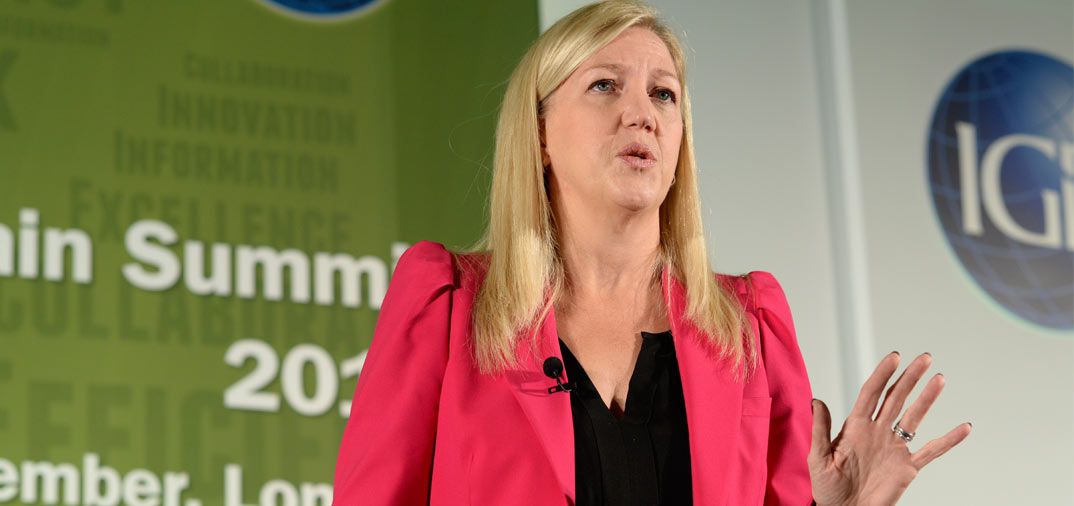Availability is one of the most important things a wholesaler or a retailer can give to a customer, but you can’t have good availability without a solid supply chain. I went to the IGD Supply Chain conference yesterday to find out what the independent channel can learn from the ‘big boy’ retailers.
I was joined by more than 400 food and drink manufacturers and took away seven key lessons:
Create healthy competition with manufacturers: Sainsbury’s has sent a list of key performance indicators to its suppliers and has developed a benchmarking tool to create competition, which has improved its availability. “After all, customers don’t see service levels [between us and our suppliers]; they see availability”, said Sainsbury’s director of supply chain operations Karen Whitworth.
Offer random acts of kindness: If you spend more than £40 in Waitrose, you get a big bar of Toblerone and when you order online, you get your shopping delivered for free. Is it profitable? It doesn’t really matter, according to supply chain director for Waitrose, David Jones. “You’ve got to do the right thing”, he explained, which is why last year, Waitrose’s Christmas advert was targeted completely around fundraising for charity. But it’s not always easy to guarantee a return. “Have ever tried to forecast for random acts of kindness?” asked David.
Get with the times – invest in technology: It may be a big investment, but technology takes the complexity out of the supply chain, said supplier ordering director at Tesco, Tom Hebbert. “It’s interesting how many employers are still giving their staff £100 desktops instead of the equipment they need.” Hebbert explained that Tesco’s investment into big data is being used to improving promotions and availability, predict the effect of weather on sales, reduce depot stockholding and counteract food waste.
Build trust with your customers: The way people shop has changed, explained Sainsbury’s director of supply chain operations, Karen Whitworth. People are not embarrassed to go into discounters and use vouchers – it’s even seen as trendy. “Retailers have ways of making customers feel like they are getting value for money”, explained Karen. “Price is irrelevant. Now, it’s all about trust. Trust can drive competitive advantage.” And to be true to her word, Karen showed delegates an exclusive preview of the Sainsbury’s Christmas advert.
Offer daily deliveries for fresh: As more convenience stores increase their fresh offering, getting the proposition right can be difficult, particularly when high availability could mean extra waste. The Co-operative’s solution is to invest hundreds of millions of pounds into a new logistics network, which has enabled it to receive stock in-depot seven days a week. Supply chain director at The Co-operative Mark Hale said: “Some suppliers only deliver five days a week, but we wanted to improve availability. We are now delivering more fresh to our retailers.”
Know your multi-channel strategy: When you offer customers more than one way to buy something – you must be clear on your strategy, explained supplier ordering director at Tesco, Tom Hebbert. “There is a much deeper engagement involved in multi-channel. There are different ways to approach the customer experience.” Tom recommended deciding early on whether you want to explore customers’ interests or a more basic tool that offers quick, simple information.
Recognise humility and humanity: Two words that are not used in the supply chain much – humility and humanity – but Waitrose’ David Jones said they can be critical to a company’s success. He referred to the story of Tony who works in one of the national depots as loader. He explained that one of Tony’s delivery trucks had the incorrect details on it, which would mean that Torque would miss its milk delivery the next day. “At 1am, while he was still in bed, Tony realised the details were wrong but still got dressed and drove to the depot to change it.” He managed to re-direct the milk and made little fuss about it the next day. David explained that these are the humbling stories that we need to encourage, recognise and reward.
For more information on the IGD Supply Chain conference visit www.IGD.com






Comments
This article doesn't have any comments yet, be the first!